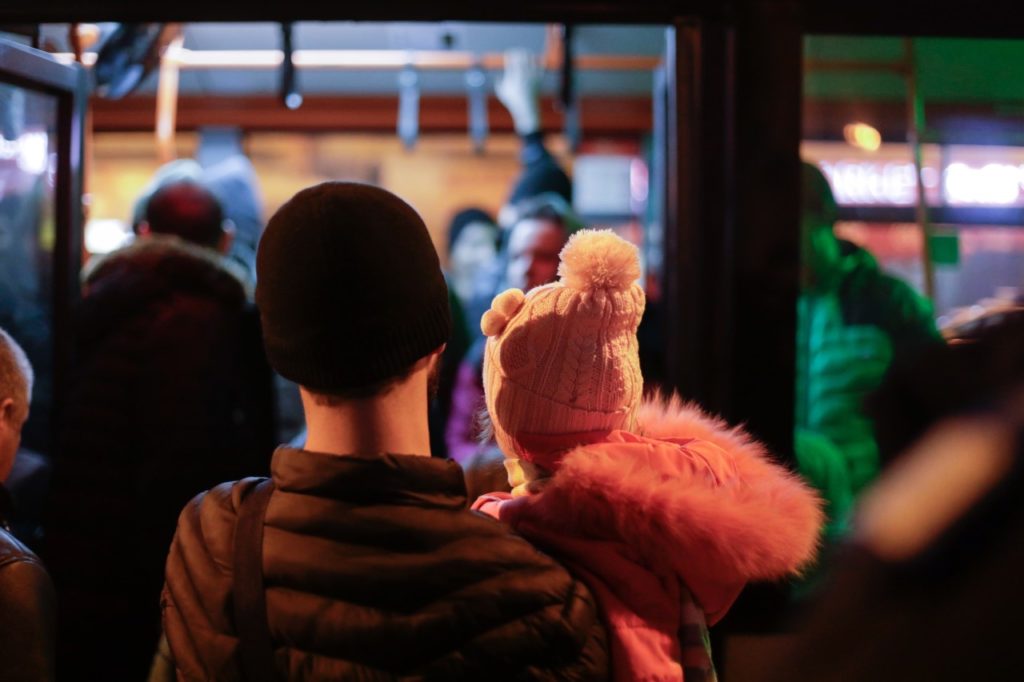By Dr Unni Krishnan, Global Humanitarian Director – Preparedness & Response
Any child dying in a war zone is a vote of no-confidence against humanity. As images from Ukraine of bombed homes, rubble and fire balls from missile strikes dominate our news screens, reports on Sunday by Ukraine’s human rights commissioner indicated that 210 people have died so far, including several children.
According to news reports, one of these was a seven-year-old girl called Alisa who died during an attack on her kindergarten. Some people are calling the war in Ukraine the beginning of a third World War, others the beginning of a second Cold War. Let’s be clear, a war by any name is wrong.
Though children have nothing to do with the causes, wars impact them more than anyone. When children experience conflict, they dream of the missile strikes. The terrifying fighter jets blur their young minds about their futures. Like Lamia, a 10-year-old girl from Baghdad I met in a paediatric hospital there during a humanitarian mission nearly 20 years ago, who had this in common with other children I’ve met in war and conflict zones.
UN agencies are warning that this war may result in five million refugees in the region beyond the war zone. Humanitarian workers receiving refugees on the Ukranian-Romanian border told me today that numbers of refugees crossing the border has doubled in 24 hours. No doubt, this is the beginning of a long saga of suffering.

Watching images of bombings and mass movement of people has brought back memories of children I’ve met during my work in war and disaster zones. Such as 12-year-old Omsiyat, in the bombed Omar Khattab Primary School, north of Gaza. Fighter jets and missiles strike could never wipe out the smiles on her face. With colourful crayons, she even gave me a crash course in art.
One of the most important lessons I’ve learned in such settings, is that children are a great starting point. When you begin to see a crisis through the eyes of a child, you find clarity, and get your priorities right. Children should always be the first priority in humanitarian crisis settings. Some children such as girls, children with disabilities or children who sustained trauma should be at the top of the list.
Lifesaving needs such as emergency medical assistance, food and water are critical and should always be a priority. However, there are other needs that are often overlooked. Food and medical assistance are critical to help people stay alive. Education is often a passport to a better future. Children are among the most vulnerable and most in need of protection.
Some suffering is invisible, such as emotional impacts and trauma. Children who survive wars get recurring flashbacks. Girls who have undergone sexual violence or rape – both deployed as ‘weapons’ in some war contexts – have nightmares that keep them awake. Such suffering often lasts a lifetime.
Children who have lost mobility are often more prone to psychosocial challenges. The mother of Manzoor, a 14-year-old teenager I met in Mazar-I-Sharif in Afghanistan, told me that land mines wiped out Manzoor’s both legs, stopping him from playing football, his favourite sport. He cries all the time, she said. It was not easy for him to engage in play and other activities that make a child a child. Manzoor’s mother told me that a war is often a funeral in slow motion.
In today’s context, Ukraine is one of the most mine-contaminated regions in the world. Landmines pose a threat to two million Ukrainians. Differently-abled children need specific consideration in humanitarian settings.
Children fleeing homes often walk for hundreds of kilometres, dodging bullets, gunfire, missile strikes and gender-based violence. Some are separated from their families, friends and pets. I’ve seen such children arriving in refugee camps sick, dehydrated, malnourished and suffering from trauma. Some girls in war and conflict settings and refugee camps feel they need to be on guard all the time since they have witnessed things a child never should. Imagine such suffering multiplied many times, because of the impact of a pandemic, and raging hunger in other conflict zones in the Horn of Africa and Sahel.
Mothers I met in the conflict zones of the Democratic Republic of the Congo told me that when their children manage to fall asleep, they wake up screaming. Such scenarios, where pain often spills over generations, are reminders that suffering goes on long after war ends in the minds of children in war and disaster zones, and refugee camps. Providing psychological first aid and psychosocial support is critical from day one.
There is a role of everyone here, either to reduce human suffering in this war or to stop the next war from happening. Everyone’s asking: what do we do to stand in solidarity with people in this war zone? In such settings, three actions are needed: stop the war and stop deaths, address human suffering and humanitarian needs, and ensure unhindered access for relief items and humanitarian workers. Meanwhile we need diplomatic solutions to provide justice and establish lasting peace.
I work for Plan International, an agency founded during another war in 1937 by a journalist called John Langdon-Davies, and aid worker, Eric Muggeridge, with an idea to provide compassion, food, accommodation and education to children whose lives had been disrupted by the Spanish Civil War. Now, more than eight decades later, while we continue our work with and for children in disaster and conflict zones, and refugee camps, the situation in Ukraine is a reminder that such work is relevant more than ever before.
The scenes of human suffering unfolding in Ukraine should remind us that there is never a bad time to talk about peace and how to give peace – and our children – a chance.